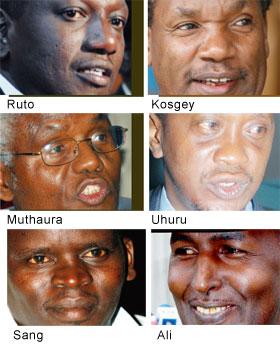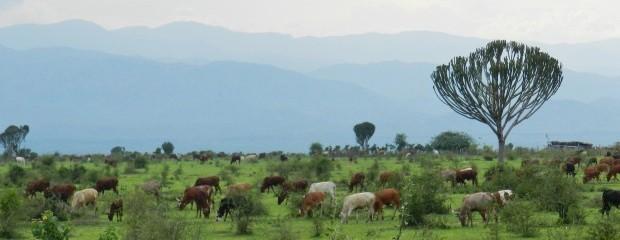ICC and Kenya: time for cooperation? – By Sabine Hoehn

 On 1st September the International Criminal Court will decided whether it opens trials against six Kenyan high ranking officials charged to be the most responsible for the 2007/8 post election violence. The suspects include Kenya’s deputy Prime Minister Uhuru Kenyatta, the secretary to the cabinet Francis Kirimi Muthaura, and the minister for industrialisation Henry Kosgey. Those, and three additional suspects, have been investigated on five counts of crimes against humanity, namely murder, forcible transfer of population, rape and other forms of sexual violence, inhumane acts, and persecution on political grounds. Will the judges decide to proceed to the trial stage in the Kenya case? Most probably yes because Kenya has yet to show that it would investigate the suspects for the charges they face in The Hague. Should the judges let the case proceed to trial stage? Most probably not, because the Kenya case provides the Court with a unique chance to demonstrate its willingness to strengthen African judicial systems and take its mandate as Court of last resort serious.
On 1st September the International Criminal Court will decided whether it opens trials against six Kenyan high ranking officials charged to be the most responsible for the 2007/8 post election violence. The suspects include Kenya’s deputy Prime Minister Uhuru Kenyatta, the secretary to the cabinet Francis Kirimi Muthaura, and the minister for industrialisation Henry Kosgey. Those, and three additional suspects, have been investigated on five counts of crimes against humanity, namely murder, forcible transfer of population, rape and other forms of sexual violence, inhumane acts, and persecution on political grounds. Will the judges decide to proceed to the trial stage in the Kenya case? Most probably yes because Kenya has yet to show that it would investigate the suspects for the charges they face in The Hague. Should the judges let the case proceed to trial stage? Most probably not, because the Kenya case provides the Court with a unique chance to demonstrate its willingness to strengthen African judicial systems and take its mandate as Court of last resort serious.
By Sabine Hoehn – Edinburgh University
It is not the first time that the ICC has investigated high-ranking officials – the Court’s arrest warrant against Sudanese President el-Beshir two years ago caused an unprecedented stir in the diplomatic relations between the ICC and Africa. However, the Kenyan case is still unusual in the ICC’s short procedural history. For the first time the ICC’s Chief Prosecutor opened investigations by his own initiative instead of reacting to a referral by a member state or the UN Security Council. Also for the first time, the ICC is investigating elected officials for short term violence in a comparatively strong state (instead of trying suspects for crimes committed during an ongoing conflict.) Lastly, Kenya initially supported the ICC’s investigations, but now voices are heard demanding to renounce Kenya’s membership of the Rome Statute and to try the suspects at home. The Kenyan case is thus the latest instance in an ongoing dispute between the Court and African states about who has the power to decide what justice is and how to enact it. The case could also indicate the future direction of the ICC’s involvement in African crises as post-electoral violence seems to become a common field of the Court’s activities. Moreno-Ocampo has already submitted a request to open investigations into crimes committed during Cí´te d’Ivoire’s post-electoral violence in 2010.
The increasing involvement of the Court in African politics has let African states roll up the welcoming mat. No other continent hosts as many member states to the Rome Statute as Africa, but the arrest warrant against el-Beshir and now the possible trial against 3 high ranking Kenyan officials have lessened the continent’s spirit of cooperation. After the el-Bashir arrest warrant the AU passed a resolution that African states should not cooperate with the ICC on the indictment of the Sudanese president[1] and it plans to extend the jurisdiction of the African Court of Justice and Human Rights to criminal cases, a step that has been interpreted as attempt to circumvent the ICC. Kenya has also back-pedalled in its ICC support. A day after the six Kenyan suspects appeared before the ICC for the first time, Kenya failed with its application to the UN Security Council to defer the case and some government officials have publicly demanded to renounce Kenya’s membership of the Rome Statute. All this points to Kenya’s increasing unwillingness to cooperate with the Court.
In this situation it should be the obligation of the ICC to reverse the widening gap between the continent and the court. One way of doing that is to take more visible steps towards a working relation with domestic African courts, “˜positive complementarity’ in the Courtspeak, and make the ICC indeed the court of last resort. This would also be in the spirit of the Rome Statute that clearly states in its preamble that it is the duty of every state to prosecute war criminals. The Kenya case provides the best chance for the Court so far to show that it wants to strengthen domestic prosecutions instead of taking over jurisdiction from African states.
Kenya has a strong legal system and has been a staunch ICC supporter until recently. Together with South Africa and Senegal it is the only African country to have included the Rome Statute in its domestic jurisdiction. Its new Constitution with its extended Bill of Rights, as well as its recently set up Truth and Reconciliation Commission to investigate human rights abuses of the last 30 years all point to a strong trend towards strengthening civil rights in the country and investigate human rights abuses. In this respect the impending ICC case might have functioned as additional motivation for the Kenyan government to strengthen domestic jurisdiction, in order to avoid a case at the International Criminal Court.
However, problems remain in the Kenyan legal system that have so far prevented the ICC from handing over investigations to Kenyan authorities. In Kenya international crimes are covered by the International Crimes Act of 2009, which is not applicable to the 2007/2008 post electoral violence. Even if it was, doubts remain that the “Ocampo 6″, the six suspects investigated by the ICC, would be charged in Kenya. The Act excludes Article 27 of the Rome Statute which states that “official capacity as a Head of State, a member of a Government or parliament and elected representative or a government official shall in no case exempt a person from criminal responsibility” (Art 27(1)). This has been taken as a deliberate attempt by Kenyan legislators to hold on to the principle of immunity. Additionally the Kenyan parliament has blocked the establishment of a Special Tribunal which was supposed to investigate the post electoral violence with the power to prosecute those it found most responsible. In a meeting with the ICC prosecutor in 2009 Kenyan officials had agreed to refer the situation to the ICC if a domestic Special Tribunal was blocked. So despite its progressive legislation and its concrete steps to prosecute war crimes in the future there is little evidence that Kenya would prosecute the Ocampo 6.
This is the official position the ICC has taken so far in the Kenya case. During the pre-trial stage judges have insisted time and again that there is little evidence to suggest that Kenya would investigate the same six suspects for the same crimes. The same person/same conduct test has been used by the Court before to prosecute the Congolese rebel leader Thomas Lubanga Dyilo who had been charged with much more serious crimes by Congolese Courts.[2] As one commentator noted, “from the beginning of the work of the International Criminal Court, there have been initiatives aimed at attracting cases for prosecution rather than insisting that States fulfil their obligations”.[3]
Complementarity in the ICC’s interpretation has meant that the Court assumes jurisdiction and interprets the exceptions rather narrowly. The International ICC Review Conference in Kampala last year did little to strengthen the concrete collaboration between international and national courts. The ICC risks repeating the practice of previous ad hoc tribunals that have refused to transfer cases to domestic courts based on the conclusion that these trials would not meet international standards. All this amounts to a sad reflection on the Court’s view of African domestic legal systems as incapable of trying their own war crimes suspects.
Currently the ICC and African countries seem to be locked in a confrontational stance: one side insists on legal obligations to cooperate with the Court, the other is stuck in its rhetoric about the sovereign prerogatives of states. Neither position promotes the goal of ending impunity and addressing past violence. Although there might indeed be room for doubt that Kenya is already investigating the same people for the same crimes, it is time for a leap of faith in favour of African judicial systems, and to show international support for human rights law in national jurisdictions. The ICC judges can adjourn cases and have occasionally done so (ICC-01/04-01/06). They could decide to postpone a decision to open trial on the condition that Kenyan courts start investigating the 6 suspects for the crimes they are charged with at the ICC. This would not only send a clear signal about the Court’s confidence in African judicial systems, it would also bolster the ICC’s standing on a continent that has become increasingly reluctant to cooperate with the Court. The decision whether to proceed to the trial stage in the Kenyan case is thus much more than a debate around legal admissibility. The ICC is a political actor whose decisions shape domestic and regional politics, in Africa more than on any other continent. A clear sign of its preparedness to support domestic courts will go a long way to secure future cooperation of states.
[1] However, the decision was not unanimously adopted and South Africa and Botswana have already declared that they would arrest el-Beshir if he entered their territory.
[2] In Congo Lubanga was to stand trial for genocide and crimes against humanity but the ICC had demanded his extradition to The Hague to face charges of conscripting children.
[3] Schabas, W (2007)”˜Complementarity in Practice’: Some Uncomplimentary Thoughts Presentation at the 20th Anniversary Conference of the International Society for the Reform of Criminal Law, Vancouver, 23 June 2007, p 2.





Thank you for your great piece. Please see my take here:
http://elafricanist.wordpress.com/2011/08/30/kenya-and-africa-vs-the-international-criminal-court/
I draw upon your piece to raise a more serious question about the ICC itself and its involvement in Africa.
[…] [ii] https://africanarguments.org/2011/08/30/the-international-criminal-court-and-kenya-time-for-cooperati… […]